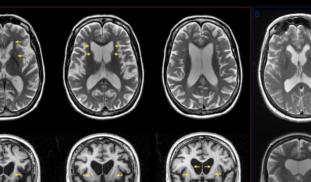78
0
0
Like?
Please wait...
About This Project
Med Biotech Laboratories
Nodding Disease Syndrome (NDS) is a brain disease that affects children in Uganda. We currently don’t know of the exact cause of NDS, nor have a reliable form of diagnosis. This project aims to answer both of these questions by first investigating a link between a suspected brain protein which might be related to NDS, and a protein related to a parasitic worm disease, and to measure levels of this protein in affected/unaffected children.

Browse Other Projects on Experiment
Related Projects
Vision for the future: Understanding perceptual strategies following visual loss
Many people will experience a decline in vision at some point in their life. For many people, this may be...
What is the role of copper and zinc dyshomeostasis in Alzheimer's disease pathology?
Alzheimer's Disease, the 6th leading cause of US deaths, is characterized by amyloid-beta(Aβ) plaques and...
Can people be screened for acute mountain sickness susceptibility?
This project aims to investigate cerebral deoxygenation during exercise in hypoxia in order to highlight...

